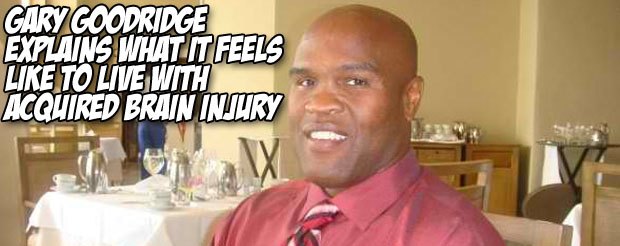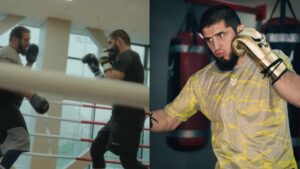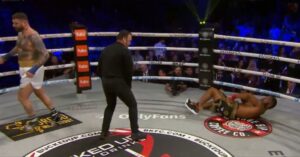We live, breathe, eat and sleep combat sports around here. We love it so much we want to marry it and procreate with it and grow old, retire, buy a Winnebago and wear highwater elastic waist pants and orthopedic shoes with it. There’s almost nothing we don’t love about the sometimes beautiful, sometimes horribly ugly and messy-but always violent display of the art of fighting. Almost nothing.
It seems even the most wonderful things in life, even the the things that make our hearts dance with glee and our minds explode with amazement-even those things have a downside. It’s sad, but it’s what creates balance in our world. If everything was always awesome we’d get bored and complacent. Every story needs an antagonist, drama or some sort of struggle to keep the world in check. One of the downsides of our sport, and other sports like Football or Hockey is the potential for fighters to suffer from Acquired Brain Injury or ABI.
Although it doesn’t happen to everyone-there is a higher instance of it in our sport. Very few fighters have come out to openly discuss the condition and how it feels to live with it. We’ve heard stories from boxers or football players about the condition, but never really heard about it from anyone in our MMA world until reading a piece Gary Goodridge posted on his Big Daddy Gym website early this week.
“It wasn’t until a few years ago that I really started to notice the effects that acquired brain injury was having on my life. Truthfully, I don’t even think I was really aware of the signs. It took other people pointing out things, like the fact that I would often call the same person multiple times in a day, not realizing that I’d already spoken to them. I was easily forgetting things that I had once been able to remember without issue. At first I started chalking it up to forgetfulness or the fact that I’m really busy; however, it eventually became clear that there was something more going on…things just weren’t computing the same way that they once did. My intelligence was the same but I just couldn’t get words out in the same way that could before.
Eventually people in the media and fans on the message boards started pointing out that I seemed a little “punch-drunk,” meaning that my speech had changed since the beginnings of my career. I tried to keep to myself more instead of granting all the interviews that I once had. I have two beautiful young daughters and I didn’t want them to know their father was having problems. I also worried about whether other people could take me seriously as a fighter and businessman with my speech sounding the way it did.
Along with slurred and choppy speech the clarity of my thoughts is not the same. I’m often all over the map, whether it’s trying to solve everyday problems or have a normal telephone conversation with someone. I have a lot less patience then I used to, including other drivers, fans, and even people close to me like my children. I have increased issues with anger and I also suffer from occasional depression. I tend to have a volatile personality with increased highs and lows. In terms of my romantic life, I find I’m less open to communicating with my partner. Instead of a long, drawn-out conversation, I prefer a quick resolution. I’ve tended to avoid any sort of emotional connection because I’m worried about forgetting important dates or promises that I’ve made. For the longest time, my denial about brain injury meant that I would blame my issues on other people, often hurting those closest to me. The brain injury has affected my sex drive, thyroid function, sleep patterns, social involvement and financial stability.”
Wow. Reading about the condition from a fighter’s honest perspective is eye-opening and that’s just a small portion of the piece Gary Goodridge wrote up on his ABI conditon. I highly recommend you go and read the entire writeup for a full perspective on how he deals with and lives with this condition and remains positive and one of the most likeable guys in MMA.[source]









